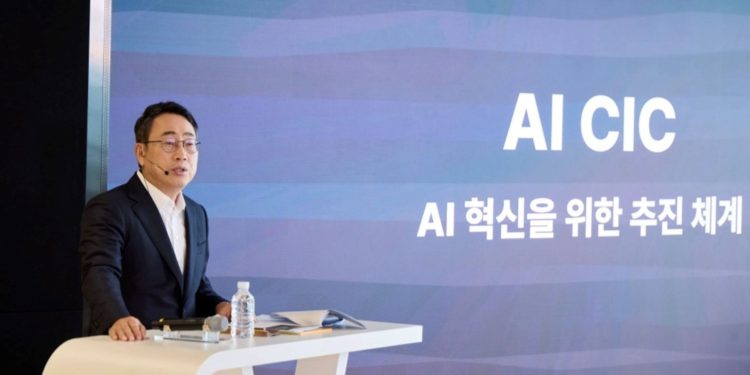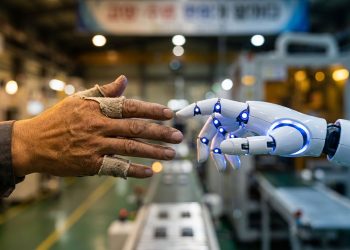Korea’s largest mobile operator consolidates AI assets to strengthen competitiveness and rebuild trust
South Korea’s largest mobile operator, SK Telecom, has created a Company-in-Company (CIC) unit dedicated exclusively to artificial intelligence. This reorganization consolidates the company’s diverse AI assets into a single structure, with the goal of speeding up innovation and strengthening execution capabilities.
By integrating its operations under one roof, SK Telecom aims to respond faster to shifts in the global AI market and position itself as a central player in Korea’s national AI strategy.
As part of the restructuring, SK Telecom has pledged a ₩5 trillion (US$3.6 billion) investment over the next five years. The company has set a long-term goal of generating more than ₩5 trillion in annual AI revenue by 2030.
The investment will also drive what SKT calls a full-scale AI transformation (AX)—an initiative to embed AI across its internal systems, infrastructure, and workplace culture to improve efficiency and employee capabilities.
CEO-Led Initiative
The new CIC will be led directly by CEO Ryu Young-sang, highlighting its role as a top strategic priority for SK Telecom. Speaking at a company-wide meeting on September 25, Ryu characterized the unit as a flexible hub intended to speed up the development of AI services for both individual users and business clients.
Ryu emphasized that the company must seize opportunities during this “golden era of AI” by focusing on two fronts:
- Internal innovation – improving systems, operations, and employee AI readiness.
- External innovation – developing new AI-driven services for businesses and consumers.
Integration of AI Assets
The new unit consolidates a wide portfolio of SK Telecom’s AI assets, including:
- A. (Adot) – its personal assistant service.
- A. Biz – enterprise-focused AI solutions.
- AI data centers – supporting cloud and large-scale AI operations.
- Global AI partnerships and investments.
- R&D programs.
- Messaging and authentication services.
This integration is expected to streamline execution, reduce duplication, and enable more efficient scaling of AI products.
Expanding Global Partnerships
The launch of the CIC also builds on SK Telecom’s broader strategy of branding itself as an “AI company.” In recent years, it has introduced its own AI foundation model, opened the Ulsan AI data center, and secured more than 10 million users for its Adot assistant.
Most notably, SK Telecom has formed a strategic partnership with OpenAI, which recently opened a Korea office. This collaboration is expected to go beyond consumer services into enterprise and group-level AI initiatives, expanding SK Telecom’s international influence.
Balancing Growth with Trust Recovery
While SK Telecom is advancing its AI ambitions, it also faces the challenge of regaining public trust after a massive data breach that compromised 23 million customer records. The company has committed $514 million to upgrading its security systems under its Accountability and Commitment Program.
Ryu linked the creation of the CIC to this effort, presenting it as a chance to not only drive AI growth but also rebuild credibility with customers and the market. By aligning AI innovation with stronger security measures, SK Telecom seeks to reassure stakeholders that growth and trust can progress together.
Outlook: From Telecom to AI Powerhouse
The launch of the AI CIC represents more than just organizational restructuring—it signals SK Telecom’s shift toward becoming a tech-driven AI leader. With heavy investments, global partnerships, and a centralized AI strategy, the telco is positioning itself to compete not only within Korea but also on the international stage.
If successful, SK Telecom’s approach could serve as a model for other telecom operators looking to diversify beyond connectivity and capture value in the rapidly evolving AI ecosystem.







